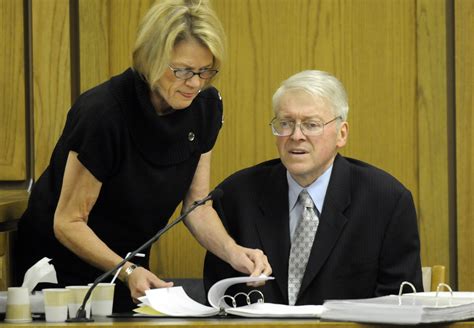A Quote by Judith Butler
I think we have to ask, not, what "Gender trouble" is today but where "Gender trouble" is today.
Related Quotes
One of the concepts I was having trouble illustrating was the concept that administrative systems create narrow categories of gender and force people into them in order to get their basic needs met - what I call "administrative violence." I had images of forms with gender boxes and ID cards with gender markers, but I also wanted an image that would capture how basic services like shelters are gender segregated.
Our culture is in deep trouble, and at the heart of its trouble is its loss of a vision for manhood. If its difficult for you and me as adult males to maintain our masculine balance in this gender-neutral culture, imagine what it must be like for our sons, who are growing up in an increasingly feminized world.


































